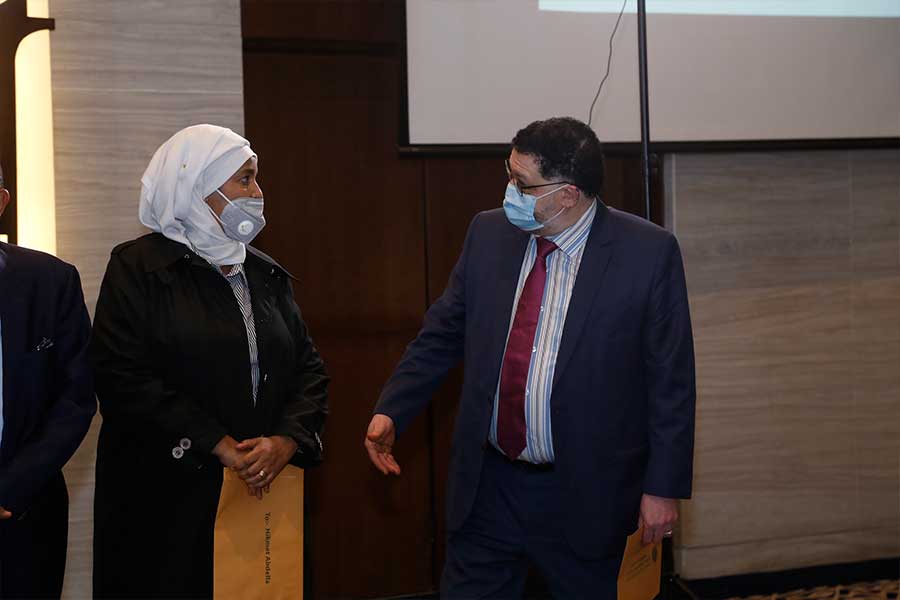
Commentaries | Sep 10,2023
Jan 13 , 2024
By MUNIR SHEMSU ( FORTUNE STAFF WRITER )
The number of youth not in education, employment, or training (NEET) has surged to a staggering 62 million people across Sub-Saharan Africa, according to a recent report released by the International Labor Organisation (ILO). The implications of this alarming trend are particularly troubling for countries like Ethiopia, where declining real wages and a significant youth population are a reality.
The global labour market wrestling with a high inflation rate while the unemployment rate is projected to increase by 2.2 million people in 2024, exacerbating the precarious economy. With a third of the employed labour force in Sub-Saharan countries living in extreme poverty, the sharpest of pangs felt by low-income countries registering double-digit inflation rates.
According to the “World Employment and Social Outlook: Trends 2024” report released last week, only China, the Russian Federation and Mexico from the G20 enjoyed positive real wage growth. The number of workers living in extreme poverty – earning less than 2.15 dollars a day per person in purchasing power parity (PPP) terms grew by about one million worldwide.
For Ethiopia, a country where the extreme working poverty rate was estimated at 18.3pc in 2022, and the informality rate has hovered around 86pc, labour market imbalances are highly pronounced.
The ILO Director General, Gilbert F. Houngbo, remarked during the report's launch that the global challenge of 435 million people actively seeking employment in the year but unable to find it.
According to Gilbert, informal economy employment was returning to its pre-pandemic levels, which heralded significant opportunities with around two billion people engaged in various sectors. However, he raised concerns over the quality of the jobs with the inevitable existence of an informal economy in most places across the world.
He said contractual agreements are crucial to avoid abuses, underscoring the high exposure to infringement of worker rights as necessarily requiring some form of intervention.
"Facts are facts," he said.
One of the significant concerns raised is the growing youth unemployment crisis, particularly in Africa, where the rate is three times that of the adult population.
The decline in real wages is a worrying trend as most countries try to tame high inflation rates with economic growth expected to decelerate in the coming year. Coupled with the likelihood of increasing population pressure, "it's a worrisome development," said Richard Samans, research director at ILO.
A UNESCO estimate predating the entry of 1.7 million students who failed to enter universities, indicated that primary school completion rates in Ethiopia were 6.5pc below the Sub-Saharan average, while upper secondary completion rates were nearly half of the regional average at 13.6pc. This sets the stage for a looming education crisis that contributes to the growing ranks of NEET youth.
In response to these predicaments, the federal government is working to create around three million new domestic jobs and around half a million foreign employment opportunities, following agreements with five countries.
The Ministry of Labor & Skills has been expanding its Technical & Vocational Education & Training (TVET) programs. Mulu Keneni, deputy director of Training & Institutional Capacity Building, revealed plans to incorporate about 632,000 students into the programs across 1,300 private and public campuses nationwide.
While requirements differ based on the specific discipline students pursue, prospective entrants are expected to have at least finished 12th grade before joining the long-term TVET programs. However, uncertainties over the effectiveness of these programs arise.
"We're not quite sure how many will show up," said Mulu.
Mulu emphasised the importance of market analysis to determine the specific number of students required in each discipline, considering regional needs and skills gaps. He said they aim to align the TVET programs with the demands of the job market, recognising that market demand may vary between rural and urban areas.
Officials also intend to restart short-term training programs that were given to 100,000 women in the previous year. These programs, designed to prepare women for employment abroad, were temporarily halted due to delays in passport deliveries by Immigration & Citizenship Services.
The resumption holds significance for women like Hindia Mukhtar, a 23-year-old housemaid from Jimma town, Oromia Regional State. She has been working for a monthly wage of 2,300 Br for the last year and a half.
Hindia, like thousands of young women in Addis Abeba, works in the informal service economy, with rare instances of contractual agreements and little job security. She hopes to take short-term training courses for employment abroad once it gets restarted after having worked for four years at different homes.
"I hear there is good money abroad," Hindia told Fortune.
The NEET group has reached unprecedented levels, posing a concern for countries like Ethiopia. The high prevalence of informal employment is a common trend in Africa, with eight out of 10 employed people in the region engaged in informal employment in 2023, according to the ILO.
Ethiopia's employment rate has averaged around four percent for the past few years. The rest are largely involved in the agriculture sector where nearly 70pc of the jobs are held by young men and about 50pc are women.
While experts acknowledge the contribution of the informal sector as one of the largest employers providing apprenticeship opportunities rarely found in the formal sector, they raise concerns about precarious working conditions, especially for women.
Ethiopia's labour challenges will persist until the country moves progressively beyond primary agriculture, implements effective labour policies, and enhances skill acquisition, according to Ezana Amdeworq (PhD), a sociologist and researcher with expertise in labour dynamics in Ethiopia.
He points out a "scandalous mismatch between skills and opportunity" in the capital, emphasising that many formally "educated" youth lack both soft and technical skills necessary in the workplace. A case in point is the recent skill and character assessment rolled out for 15,000 officials in Addis Abeba City Administration, where 40pc have attained a passing mark.
Ezana raises serious questions about the validity of employment statistics in the country and argues that the statistical definition of employment is problematic resulting in underemployment, skills mismatch, and the high informality of the labour market.
"The number of the working poor is dangerously high," he said, underscoring the inadequacy of existing statistics to capture the full extent of the issue due to the prevalence of high informality.
PUBLISHED ON
Jan 13,2024 [ VOL
24 , NO
1237]

Commentaries | Sep 10,2023

My Opinion | Jul 27,2024

Commentaries | Dec 30,2023

Commentaries | Mar 25,2023

Commentaries | Jun 17,2023

Fortune News | Dec 21,2019

Viewpoints | Oct 25,2025

Fortune News | Sep 06,2020

Sunday with Eden | Jul 27,2019

Commentaries | Jun 14,2025

Dec 22 , 2024 . By TIZITA SHEWAFERAW
Charged with transforming colossal state-owned enterprises into modern and competitiv...

Aug 18 , 2024 . By AKSAH ITALO
Although predictable Yonas Zerihun's job in the ride-hailing service is not immune to...

Jul 28 , 2024 . By TIZITA SHEWAFERAW
Unhabitual, perhaps too many, Samuel Gebreyohannes, 38, used to occasionally enjoy a couple of beers at breakfast. However, he recently swit...

Jul 13 , 2024 . By AKSAH ITALO
Investors who rely on tractors, trucks, and field vehicles for commuting, transporting commodities, and f...

Nov 1 , 2025
The National Bank of Ethiopia (NBE) issued a statement two weeks ago that appeared to...

Oct 25 , 2025
The regulatory machinery is on overdrive. In only two years, no fewer than 35 new pro...

Oct 18 , 2025
The political establishment, notably the ruling party and its top brass, has become p...

Oct 11 , 2025
Ladislas Farago, a roving Associated Press (AP) correspondent, arrived in Ethiopia in...